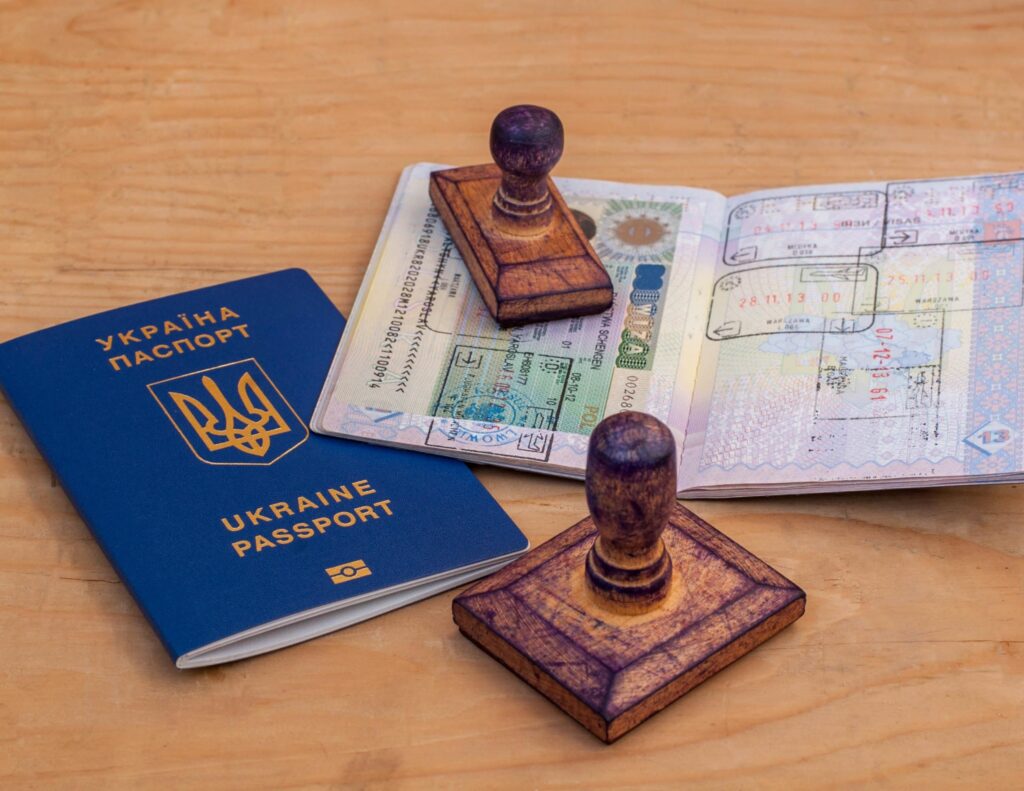
Studying overseas is a big commitment, but you can handle it easily and concentrate on the thrilling journey that lies ahead if you plan beforehand and pay close attention to the paperwork. This luck!Comprehensive Advice for Students Making Early Plans Studying overseas after graduating from high school is an exciting and life-changing choice for Indian students. The process of studying abroad can seem complex and overwhelming, but with proper planning and guidance, it can turn into a smooth journey toward a bright academic and professional future. In this guide, we will provide a step-by-step approach to help you navigate the study abroad process after 12th, ensuring you’re fully prepared for this life-changing experience.
Step 1: Start Planning Early
Studying overseas is a big commitment, but you can handle it easily and concentrate on the thrilling journey that lies ahead if you plan beforehand and pay close attention to the paperwork. This luck!Starting early is the first and most crucial piece of advise for any student who want to study abroad after completing their 12th grade. You will be more prepared if you start early. Ideally, you should start your research and planning at least 1-2 years before you intend to leave for your studies. Early planning will help you make informed decisions about where to study, what to study, and how to secure the necessary resources.
Why Start Early?
• Research Opportunities: Starting early gives you enough time to thoroughly research universities, courses, and scholarships.
• Prepare for Exams: It allows ample time for preparing for entrance exams like SAT, ACT, IELTS, TOEFL, or others required for university admissions.
• Financial Planning: You can also plan your finances, including scholarship applications and other funding options, well in advance.
Step 2: Choose Your Course and University
One of the most critical decisions in the study abroad process is choosing the right course and university. This decision can shape your career, so it is essential to choose wisely.
Factors to Consider When Choosing a Course:
- Your Interests and Strengths:Studying overseas is a big commitment, but you can handle it easily and concentrate on the thrilling journey that lies ahead if you plan beforehand and pay close attention to the paperwork. This luck!Select a course based on your passions, interests, and long-term professional objectives. The trip might be more satisfying if you are studying something you are enthusiastic about, whether it be engineering, business, medicine, or the arts.
- Future Career Prospects:Studying overseas is a big commitment, but you can handle it easily and concentrate on the thrilling journey that lies ahead if you plan beforehand and pay close attention to the paperwork. This luck!Examine the employment opportunities in your field of interest in the nation where you choose to pursue your studies. Certain courses are more lucrative and offer better employment prospects than others.
- Course Reputation and Curriculum: Studying overseas is a big commitment, but you can handle it easily and concentrate on the thrilling journey that lies ahead if you plan beforehand and pay close attention to the paperwork. This luck!Look into the colleges that offer the course you want to take. Seek out universities that are highly regarded in the field you are interested in.
- Accreditation: Studying overseas is a big commitment, but you can handle it easily and concentrate on the thrilling journey that lies ahead if you plan beforehand and pay close attention to the paperwork. This luck!Verify the accreditation and recognition of the programs and universities you are thinking about by international education authorities.
Popular Undergraduate Courses for Indian Students:
• Engineering: Mechanical, Computer Science, Electrical, Civil
• Business and Management: BBA, MBA, International Business
• Computer Science & IT: Software Development, Data Science
• Design & Arts: Fashion Design, Fine Arts, Architecture
• Social Sciences & Humanities: Psychology, Sociology, Political Science
How to Research Universities:
• Use online resources like QS World University Rankings, Times Higher Education, and University Websites to compare universities and programs.
• Consider the university’s location, student life, support services, and overall reputation.
Step 3: Prepare for Standardized Tests
Studying overseas is a big commitment, but you can handle it easily and concentrate on the thrilling journey that lies ahead if you plan beforehand and pay close attention to the paperwork. This luck!Most international universities, especially in countries like the USA, Canada, and the UK, require students to take standardized tests for admissions. These tests assess your academic abilities, and some universities also require language proficiency exams for non-native English speakers.
Common Standardized Tests:
- SAT: The SAT is widely accepted by universities in the USA. It tests your skills in reading, writing, and math.
- ACT: Similar to the SAT, the ACT is also accepted by most U.S. universities.
- IELTS/TOEFL: English proficiency exams that assess your ability to understand and communicate in English. These are required by most universities in English-speaking countries.
- SAT Subject Tests: Some universities may require subject-specific SAT tests depending on your chosen course.
- Other Exams: Depending on the course or country, you might also need to take additional tests like GRE, GMAT, or others.
Tips for Preparing:
• Start Early: Start preparing for these exams at least 6-12 months in advance. Use online resources, attend preparatory classes, and take practice tests.
• Research Requirements: Check the specific test score requirements for the universities you’re applying to, and ensure you meet or exceed them.
Step 4: Gather Required Documents
Once you’ve chosen your course and university and prepared for any necessary exams, the next step is to gather all the documents you will need to apply to universities.
Common Documents for Application:
- Transcripts: Your 12th-grade marksheet, as well as transcripts from any previous education, will be required.
- Standardized Test Scores: Copies of your SAT, ACT, IELTS, or TOEFL scores.
- Letters of Recommendation (LORs): Most universities require letters from your teachers, counselors, or employers who can speak to your academic abilities and character.
- Statement of Purpose (SOP): A personal essay that explains your motivations for studying abroad, your career goals, and why you’ve chosen that specific university and course.
- Resume/CV: For some programs, especially at the postgraduate level, you might need to submit a resume detailing your academic achievements, internships, and extracurricular activities.
- Passport: Ensure your passport is valid for at least six months beyond your intended study period.
Step 5: Apply to Universities
Once you’ve gathered all your documents and are ready to apply, the next step is to start submitting your applications to universities.
How to Apply:
- Online Application: Most universities have an online portal where you can submit your application. Ensure that all fields are filled out correctly and that you upload the required documents.
- Application Fees: Many universities charge an application fee. Be prepared to pay this fee when submitting your application.
- Check Deadlines: Universities often have multiple application deadlines for early admissions, regular admissions, and late admissions. Make sure you meet the deadlines for the programs you’re applying to.
Track Your Application:
• Keep track of your application status through the university’s portal and respond promptly to any additional requests from the university.
Step 6: Apply for Scholarships and Financial Aid
Studying abroad can be expensive, but there are numerous scholarships and financial aid options available to help offset the costs. Scholarships can be merit-based, need-based, or country-specific.
Types of Scholarships:
- University Scholarships: Many universities offer merit-based scholarships to international students.
- Government Scholarships: Countries like the USA, UK, Canada, and Australia offer government-funded scholarships for international students.
- Private Scholarships: Many organizations, foundations, and businesses offer scholarships to students planning to study abroad.
Tips for Applying for Scholarships:
• Research scholarship opportunities early and apply to as many relevant scholarships as possible.
• Pay attention to eligibility requirements, deadlines, and application procedures for each scholarship.
• Include strong essays, recommendation letters, and proof of academic excellence in your applications.
Step 7: Secure Your Student Visa
Once you receive an offer of admission from a university, the next step is applying for a student visa.
Visa Requirements:
• Proof of Acceptance: A letter of admission from the university.
• Proof of Funds: You will need to show proof that you can financially support yourself while studying abroad.
• Medical Examination: Some countries require a medical check-up or health insurance.
• Visa Interview: You may need to attend an interview at the embassy or consulate to get your student visa.
Ensure that you start your visa application as soon as possible, as visa processing times can vary.
Step 8: Plan Your Travel and Accommodation
Once your visa is approved, it’s time to make travel and accommodation arrangements.
Booking Flights:
• Book Early: Flight prices tend to rise as the departure date nears, so book your flights early to save money.
• Travel Insurance: Consider purchasing travel insurance to cover potential risks like cancellations, medical emergencies, or lost luggage.
Accommodation Options:
- On-Campus Housing: Many universities offer on-campus dormitories for international students.
- Off-Campus Housing: If you prefer off-campus accommodation, start your search early.
- Homestays: Living with a local family can be an enriching cultural experience.
Step 9: Settle In and Start Your Studies
After arriving at your study destination, take some time to acclimate to your new environment.
• Attend Orientation: Most universities offer an orientation for international students, helping you navigate your new surroundings. • Explore Your New City: Familiarize yourself with the local area, public transport, and essential services.
Conclusion
Studying overseas is a big commitment, but you can handle it easily and concentrate on the thrilling journey that lies ahead if you plan beforehand and pay close attention to the paperwork. This luck!After completing your 12th grade, studying abroad is an exciting option that has the potential to significantly impact your future. A good academic experience overseas can be achieved by following these steps: starting early, selecting the appropriate subject and university, studying for tests, assembling documentation, applying for scholarships, and obtaining your visa. Recall that the secret to realizing your ambition of studying abroad is early preparation and in-depth research.



